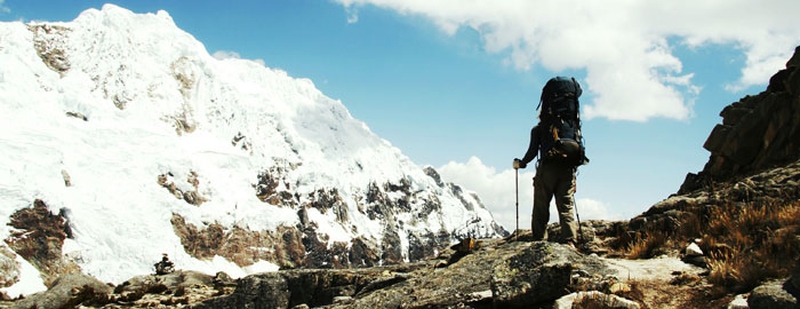Until a certain age, a true appreciation for nature is never really developed, especially if you were a lazy child, like I was.
The thought of exerting any extra energy was repulsive, making hiking top on my sh*t list.
With more years and maturity on my horizon, hiking has taught me many, many lessons on the trail that are completely applicable off the trail, too:

Part 1
Move slowly. Don’t rush through or you could get hurt.
Every time I’ve been on a hiking trip with a group of people, I’ve always felt pressured to rush through the trails in order to keep up with the pack.
But with my multiple injuries and nasty bruises, the smartest lesson a person could learn is to take things really slowly.
Especially going downhill, it’s imperative to move at a comfortable pace, making sure your footing is stable and your body doesn’t push itself too hard.
When you rush and misstep, your hiker buddies might see your body roll down the side of the mountain. It’s not worth the injury, so be careful and take every step with care.
Don’t focus on the end destination; enjoy the journey.
People forget that the majority of a hike isn’t glamorous at all. The pictures of people standing in front of open landscapes with grand mountains in the background are beautiful, but it’s a lot of hard work to get there.
When you’re rushing through a trail in order to get to the checkpoints, you miss out on a majority of the hike.
Along with taking things slowly, enjoy the workout you get from climbing uphill. It’s nature’s StairMaster, and it’s the best way to get an ass by summer.
You have no choice but to keep going.
There have been times where I went on a hike too intense for me and in the midst of it, I felt like I was about to die.
When you choose to work out on a treadmill in your local gym, you have the option to press the red stop button, walk off the fatigue and go fetch some water.
When you’re halfway up a mountain, you have no choice but to keep moving, unless you’re equipped to camp out at a checkpoint.
Hikers on the Appalachian Trail need to make a certain amount of mileage a day or else they’ll run into bad weather when they travel from south to north, jeopardizing their entire journeys.
Hiking forces your body to reach limits you didn’t even know possible, only because you have few options.
Always know your next step and pay attention.
Trail markers keep hikers alert, and they always aware of where their next steps are. Each trail marker is painted specifically so a hiker can see the next marker from the first.
This has them always looking up and planning ahead, seeing which turns to make next.
If hikers just assumed that he or she is following an obvious path, it’s easy to wander off trail, which is never a fun feeling when you have to pee and it’s getting late out.
Hiking relaxes you.
Some people will argue that hiking, being such an active hobby, is the complete opposite of relaxing.
Personally, I find myself retreating into nature during times of turmoil. I started using nightly walks as stress relievers.
With hiking, the consistent rhythm of your steps and silence helps to quiet your thoughts.
When you’re running or walking alone, the only outlet available is your own mind.
Even when you’re hiking with someone else, people become so attuned to their own thoughts that each person is transfixed during hikes.
It’s okay to sweat. It’s okay to smell.
There are no showers in nature, and no bathrooms either, so anyone who’s gone camping before is familiar with the lingering stench that forms after a couple of days in the wild. A true hiker owns his or her stench.
No one should feel embarrassed about not looking like a celebrity going up a hill. It’s best to embrace feeling dirty, and it’s completely healthy to sweat.
That means your body knows to cool itself down when it’s being overworked.
It’s impossible to look fabulous while you’re on an intense hike, so leave the makeup at home and bring a water bottle instead.
Weather is unforgiving.
Even on the easy trails, hiking in nature is an arduous process. You’re vulnerable to the elements, whether that’s baking under a sultry sun, or freezing in the biting winter.
Because weather is never under any control, you’re the one who’s forced to adapt.
Hikers know that when you’re moving, it’s best to dress simply and lightly because once your body starts to move, your body temperature rises more then you think.
Once you’re at a standstill, throw on layers. Your body will go into shock if you don’t actively regulate your temperature.
What’s important to bring, and what’s not.
When you’re planning on camping in the wilderness for a few nights, you begin to realize what is necessary for survival and what takes up empty space.
The only way to bring anything is on your back, so when there’s limited space and you’re lugging the weight, there’s no more room for that stereo you wanted to bring.
Hikers know how to pack the very basics (weather-appropriate clothes, good hiking boots, tent, basic foods, etc.).

View All Comments /Add Comment